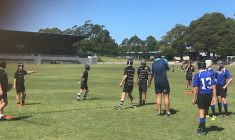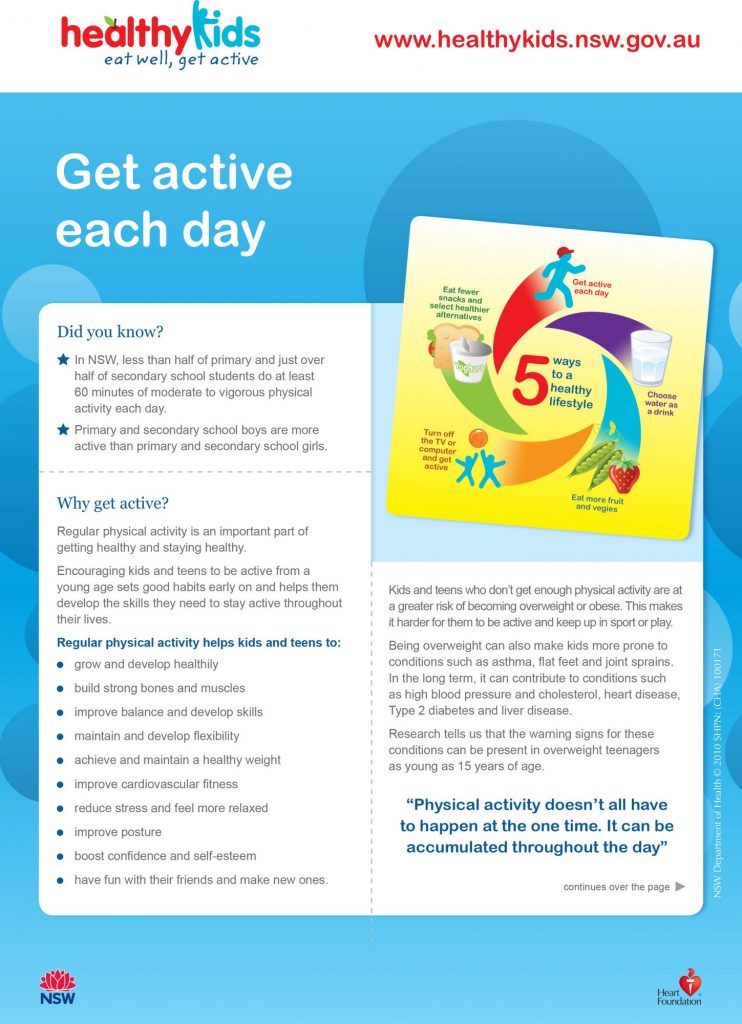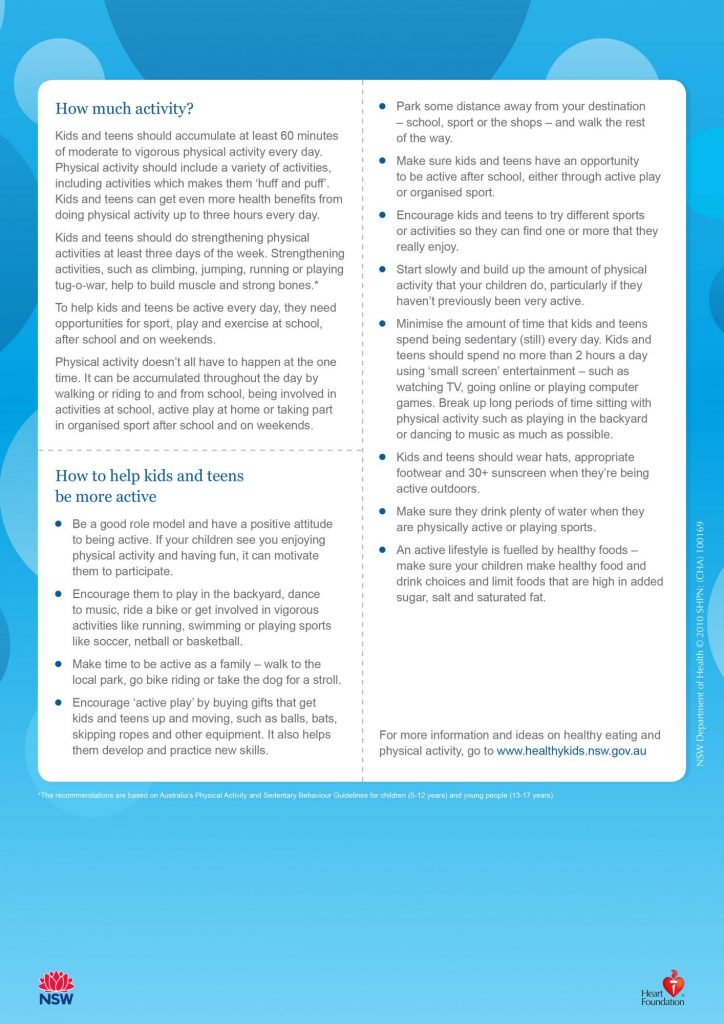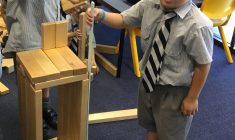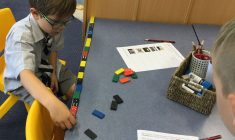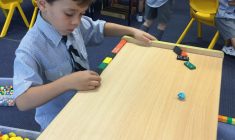A Message from the Head of Lindfield
Beliefs, Identity and Achievement
At Newington, we believe it is important for our boys to know who they are, what they believe and what they want to achieve.
I recently came across an interesting article that discussed the ways in which parents and teachers can help boys understand themselves and by default their own perceptions, beliefs and aspirations. The author, Amy Hamayoun stated that “many of today’s students have difficulty identifying what they truly enjoy or giving themselves the freedom to explore new interests, because they are fixated on an external definition of success and achievement.”
It is true that at times our boys (and us adults) are too worried about fitting into the paradigms set by peers, family and the media to actually think and act out of their own value systems and engage in what interests them. In the article, the author offers several strategies for parents and teachers to help students come to realisations and take action by helping them to understand; what they enjoy, what they believe and what they need to do to be able to achieve their goals. The four strategies are shared below.
- Create opportunities for self-awareness and self-acceptance
The author suggests asking students questions like:
- What is something new you want to try this term?
- What skill would you like to improve?
- What is one area where you are really proud of your development over the past year?
- Which personal skills have you developed well?
- What do you really like about yourself?
- If there is one new interest you could pursue, what would it be and why?
Through this process, boys get a sense of what they want to achieve, what motivates and makes them enthusiastic about life.
- Clarify values and close the believing-doing gap
Often, our boys are very clear about their beliefs but sometimes find it hard to put these beliefs into action. They ‘talk the talk’ but find it harder to ‘walk the walk.’ Homayoun’s process involves boys identifying their top 3-5 values from this list below:
abundance; commitment; compassion; connecting to others; creativity; determination; emotional health; emotional wellness; empathy; care of the environment; family; flexibility; freedom; friendship; fun; humour; integrity; joy; kindness; leadership; loyalty; personal growth; physical health; privacy; recognition; respect; service; spirituality; trust; vitality.
Boys identify their top values and reflect on whether their daily habits are moving them closer or further away from their ideals. The author believes students like this exercise because they often feel adults are pushing particular values on them rather than asking them to identify their own. If you realise you are living a life that is out of alignment with your values, it is very motivating to work to realign your behaviours.
- Focus on daily habits and incremental progress
Many of our older boys at Lindfield and our boys who move on to Stanmore become victims of technology overload, weak organisation skills and sleep deprivation. They need to be guided toward a personalized strategy for dealing with social media, the internet, and organizing schoolwork and other responsibilities – with specifics on focusing on one thing at a time, organizing work, and getting enough sleep.
I have one boy in Year 7 and this is the biggest priority for him at this stage. It is very easy for boys when they move to high school to become overwhelmed with the competing demands on their time and fall behind in their learning. A key message for a successful high school transition from Colleen Scalone, the Head of Year 7 at Stanmore, is to help boys develop organization and prioritization skills.
- Redefine failure
By Years 5 and 6 and in high school, many boys become more wary of taking healthy risks and trying new things because they’re afraid of failing. “The only real failure,” says Homayoun, “comes when we don’t allow ourselves to explore opportunities that are in line with our values, interests, and personal goals.”
Sometimes it is better for our boys to prioritise one activity over something else if it is where their interest and passion lies. This can be difficult for parents, as we want our boys to experience a range of opportunities. As the boys get older, it is really important that they understand their values, interests and have clear goals so the noise of peer pressure and the expectations of others do not derail them or move them in directions away from passions and interests.
- Bolster resiliency and buoyancy through time-travel reflection
It’s often helpful for a student to look back and look at their progress, new opportunities, and things that could have gone differently, considering questions like:
- What has happened that you are proud of?
- What was something positive that you learned through your experience?
- If something didn’t go as planned, what was something you learned that was beneficial for you?
By glorifying struggle, progress and improvement, we are giving boys the tools to be resilient about the challenges of life using a growth mindset. If parents help boys reflect in the ways shown above, they are reframing events to be instructive and positive learning experiences irrespective of the outcome.
Too often, when boys are not selected for a team, or miss out on an opportunity, the focus is on the negative as opposed to the learning and growth possible from not getting the intended result. This growth can come from future goal-setting that can arise from the experience of missing out on something in the past. These are much more powerful life lessons than the fantasy that we should always win, or get what we want. Long term, failure makes us stronger and more determined as long as it is viewed with a growth mindset. Parents can be important role models for this quality. When we model resiliency in the face of difficulty for our sons, they are encouraged to develop these skills too. We cannot underestimate the power of our own behaviour in teaching our children.
At Newington, we aim to develop boys who are able to discover what is possible, but to do this they need to be clear about who they are, what they believe and what they want to achieve. In order to get to this position they will need to develop strategies to be able to make decisions that are authentic to them. As a parent, discuss the strategies mentioned, hold back from pushing your own values and aspirations but give your son the space to show you the type of person he values, and wants to become.
If you do this then you are saying to your son, that we have confidence in you to follow your own passions and live a life that is truly challenging, authentic and meaningful.
Ben Barrington-Higgs
“One Size Does Not Fit All” by Ana Homayoun in Independent School, Spring 2018 (Vol. 77, #3, p. 80-84)
“Four Counseling Strategies for Young Adolescents” by Kim Marshall in Marshall Memo, March 2018 (Vol 727 #3, p.5-6)
















